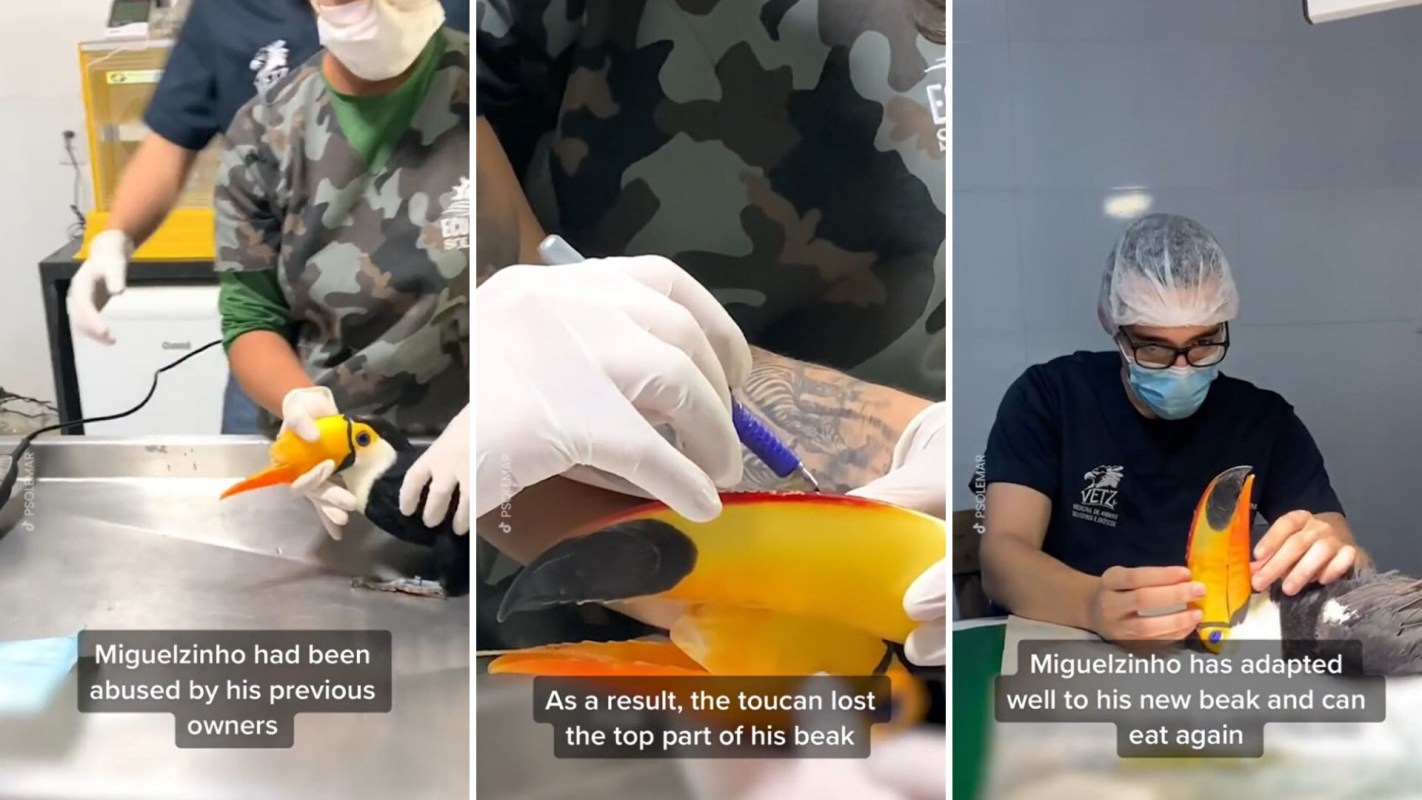A rescued toucan has found fame on TikTok after the heartwarming story of his mended beak went viral.
In a video posted by Get Lost (@getlostwebsite), a rescue center introduces us to Miguelzinho, a toucan who lost the top half of his beak after abuse from previous owners.
The center retrieved a compatible beak from another deceased animal and used it to reconstruct Miguelzinho's missing appendage.
The video shows Miguelzinho lying on an operating table while medics carefully operate on his injury. The surgery took days of planning, with dental resin used to make the beak sit lightly on the bird's face.
Happily, the operation was successful. "Miguelzinho has adapted well to his new beak and can eat again," Get Lost shared in a caption.
@getlostwebsite So happy Miguelzinho is recovering well 🙏🏽 #toucan #birdsoftiktok #wildlife #rescuebird #rescuecenter #brazil ♬ Epic Music(863502) - Draganov89
Sadly, cases like Miguelzinho's are rising as the demand for exotic pets intensifies globally.
The exotic pet market is particularly large in the U.S., where unregulated wild-caught animals enter the country at 11 times the rate of the regulated pet market.
While it is difficult to know exactly how many animals enter the country, the illicit wildlife market is thought to be worth between $7.8 billion and $10 billion per year.
PETA has condemned the abuse that animals suffer as a result of this black market, with one German travel agent putting the mortality rate of confiscated wildlife in transit at between 80% and 90%.
Captured animals often endure cramped conditions as traders smuggle them over borders. Birds may have their beaks taped and be packed inside plastic tubes, while one incident involved leopards that were stuffed into a backpack.
Those who survive the journey may be placed with inexperienced owners. According to the charity Born Free USA, captured exotic animals may suffer small enclosures, beatings, and mutilations when they do not behave as expected.
Otherwise, escaped or abandoned animals wreak havoc on their new habitat. Famously, Pablo Escobar's pet hippos (which have no predators to speak of in Colombia) have flourished, posing a threat to the area's biodiversity.
In the case of Miguelzinho, there is avian flu to consider, too, which was detected in his native Brazil last year. Illegally imported birds can hamper efforts to keep the rampant virus in check.
But now that he has been rescued, Miguelzinho can undergo rehabilitation without the threat of harm to himself or other species.
"Sad but amazing work," one TikToker wrote.
"So happy good [people] cared and were able to help," another commented. "How anybody could have hurt him is beyond my understanding."
"People shouldn't be allowed to own animals like this amazing creature," another agreed. "At least not without training and a permit."
Join our free newsletter for cool news and cool tips that make it easy to help yourself while helping the planet.









